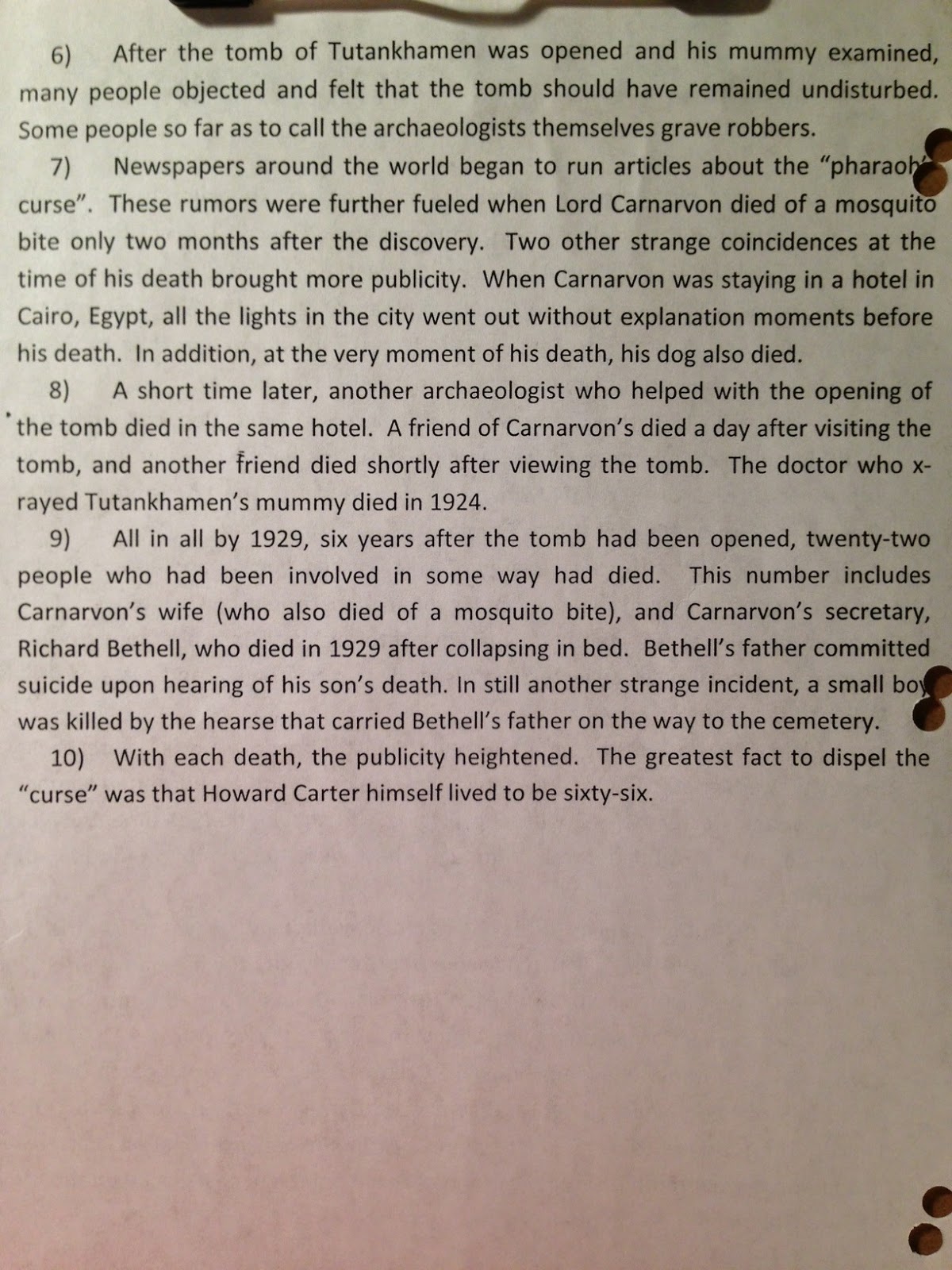Now that you have read all about life in Ancient Egypt from the Old Kingdom, through the Middle Kingdom, and all the way up to the New Kingdom, I want you to create a timeline of some of the most important events in Egyptian history.
Directions:
Step 1: Read the events that you will be using on your timeline
Step 2: Color the pictures that go with the events.
Step 3: Get 4 sheets of paper (same color)
Step 4: Glue them or staple them together end to end, overlapping them about 1 inch. Be sure that your 4 sheets measure at least 1 meter, (100cm)
Step 5: Trace a meter stick with pencil on your paper.
Step 6: Create a Scale. You need to have the years 5000BC - 0 on your timeline. I used 10cm = 500years. (see my example)
Step 7: Mark the scale and write it on your timeline in pencil.
******Peer Check Point******
Step 8: Go over your pencil lines on your number line with marker.
Step 9: Cut out your events and pictures
Step 110: Match your pictures with the proper event.
*****Peer Check Point*****
Step 11: Glue your events to your timeline being sure to draw your picture and event are aligned, connected somehow.
Step 12: Title your Timeline
















































